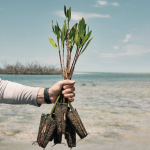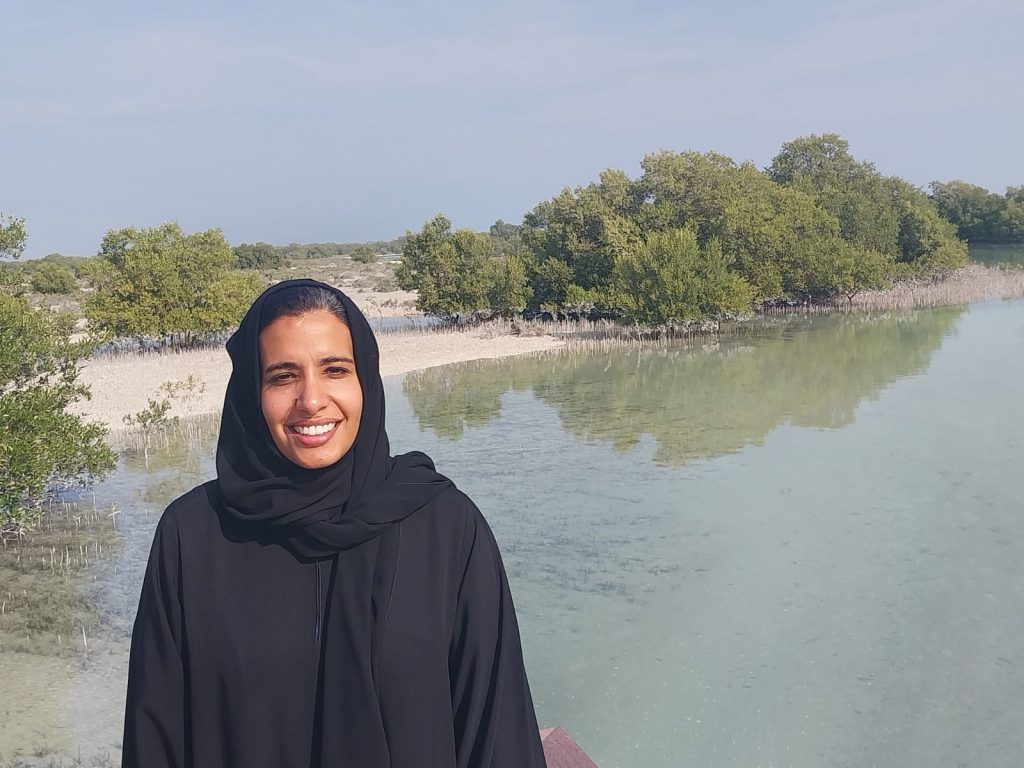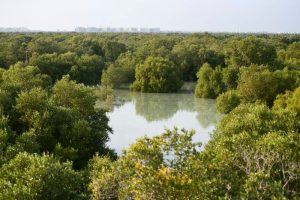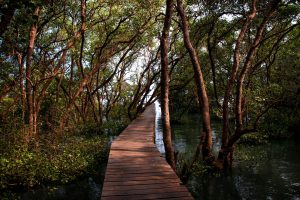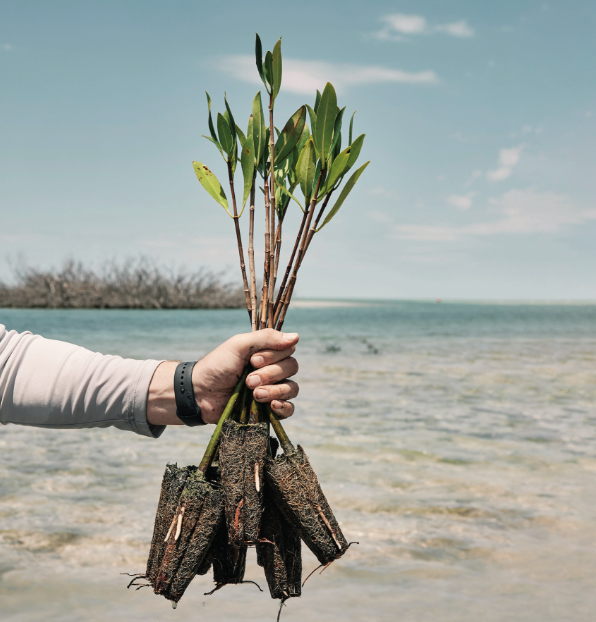Emirates Conservation Efforts at Jubail Mangrove Park
Abu Dhabi, the largest emirate of the United Arab Emirates, is home to 176 square kilometers of mangroves, a fact that many are not aware of. Jubail Mangrove Park, the only mangrove park open to visitors in the emirate, attracts approximately 300,000 visitors each year and aims to promote the local mangroves and their conservation efforts. The park serves as a nursery for fish, providing a crucial habitat for their reproduction before they venture into the ocean. Additionally, mangroves play a significant role in carbon capture, further highlighting their environmental importance.
Maitha Mohamed Al Hameli, the Marine Assessment and Conservation manager of the Abu Dhabi Environmental Agency, revealed the ongoing mangrove restoration efforts in the emirate. The restoration began in the 1970s under the leadership of Sheikh Zayed bin Sultan Al Nahyan, the former president of the UAE, and has continued since. The next step in the conservation initiative is the establishment of a mangrove-focused research center, in which Jubail Mangrove Park will be actively involved.
The conservation and restoration of mangroves in Abu Dhabi rely heavily on technology. This year alone, one million mangrove seeds were scattered across the vegetation areas, with an expected success rate of around 48% – meaning nearly half of the seeds will grow into mature trees. Jubail Mangrove Park exemplifies the conservation efforts in Abu Dhabi and not only serves as a picturesque attraction but also actively engages foreign visitors, locals, and various groups, including schools and companies.
Through the Abu Dhabi Mangrove Initiative, the focus is not only on restoration and research but also on raising public awareness. Collaboration with local and international partners ensures the adoption of the best methodologies for mangrove conservation. Additionally, the park invites scientists from around the world to witness the reality of mangroves in the UAE and utilize this knowledge in optimizing conservation efforts, particularly in relation to global warming.
Jubail Mangrove Park, often referred to as a sanctuary, not only showcases the beauty of mangroves but also provides visitors with the opportunity to observe the rich biodiversity of the area. A wooden boardwalk enables visitors to explore the local vegetation and wildlife up close. The park also offers kayak tours and a range of scheduled activities. Visitors can enjoy the parks amenities, including a cafeteria and a gift shop, which features crafts made by Emirati women and aims to support their work.
The journalist reporting on this remarkable conservation project was invited by the Embassy of the United Arab Emirates in Brazil.
